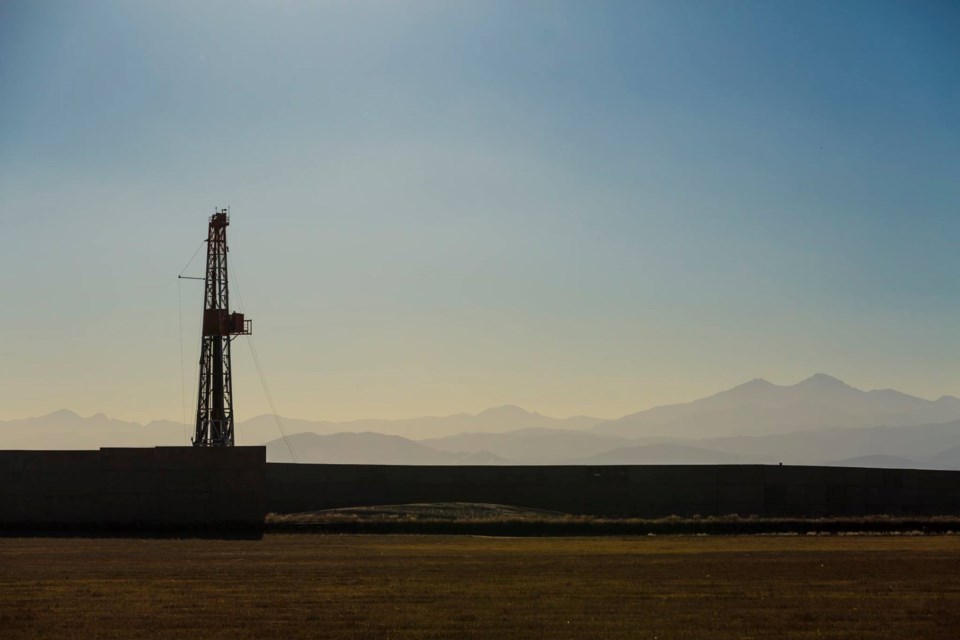Eight natural gas processing plants in Weld County will strengthen leak detection and repair practices under a settlement agreement between the Department of Justice, the Environmental Protection Agency, the state of Colorado and DCP Midstream LP.
The settlement was filed Monday in the U.S. District Court for the District of Colorado along with a complaint that alleges DCP violated leak detection and repair requirements in federal and state clean air laws, resulting in excess emissions of volatile organic compounds and other pollutants to the atmosphere, according to an EPA news release.
As part of the settlement, DCP will take corrective actions and pay a $3.25 million civil penalty for the alleged violations, the new release states.
The agreement targets the Greeley, Kersey/Mewbourne, Platteville, Roggen, Spindle, O’Connor and Lucerne natural gas processing plants, as well as the to-be-constructed Bighorn natural gas processing plant, the news release states.
City of Longmont officials had no comment on the settlement. Currently, there are no working oil and gas wells operating within the city limits.
Still, Weld County wells operating outside of the city are affecting Longmont's air quality and are being measured at an air monitoring station near Union Reservoir..
Jane Turner, Longmont’s oil and gas and air quality control manager, told the Air Quality Control Commission last week that the global mean amount of methane levels increased by 15 ppb, or parts per billion, in 2020, according to the National Oceanic and Atmospheric Administration.
The mean methane increase in west Longmont from the spring of 2020 to 2021 was 19 ppb, Turner said. The mean methane increase during that same period in east Longmont was 30 ppb.
The increases are very “concerning,” Turner said.
The improvements to the DCP sites include installing equipment that leaks less pollution to the atmosphere, reviewing compliance with leak detection and repair requirements, and repairing leaking equipment faster. DCP will also improve staff training for leak detection and repair at its facilities. Additionally, DCP has agreed to use optical gas imaging technology to improve the visual detection of leaks and address them quickly, the news release states.
DCP will also install additional pollution reduction measures at the Kersey/Mewbourne natural gas processing plant that are intended to mitigate the harm caused by its past emissions. Specifically, DCP will install a dry seal recompression system on two turbines at the Kersey/Mewbourne plant. This project will cost an estimated $1.15 million and is expected to reduce VOC emissions by 26 tons per year and methane emissions by 375 tons per year, the news release states.
The Denver Metro/North Front Range nonattainment area, which includes Weld County, does not meet national air quality standards for ground-level ozone pollution, according to the EPA news release. Equipment leaks at DCP’s plants emit VOCs, which lead to the formation of ground-level ozone. Ozone contributes to serious public health concerns, including respiratory illness, aggravation of existing heart disease and temporary breathing difficulty for people with asthma. Young children and the elderly are especially sensitive to these impacts. Leaks from equipment at DCP’s plants also emit methane, a powerful greenhouse gas.
“Leaks from equipment like valves, pumps, and connectors are a significant source of harmful air pollutants,” said Assistant Attorney General Todd Kim for the Justice Department’s Environment and Natural Resources Division, in the news release. “Enforcement actions like this are critical to improving air quality, particularly in places facing air quality challenges like Weld County.”
“EPA continues to deliver cleaner air through the rigorous enforcement of the Clean Air Act,” added EPA Regional Administrator KC Becker in the news release. “This settlement will reduce emissions of over 288 tons of volatile organic compounds and 1,300 tons of methane from production areas near northern Colorado communities, a majority of which are disproportionately impacted by pollution.”
Working with CDPHE, EPA’s enforcement program is increasing efforts in Colorado to ensure compliance and protect the health of vulnerable populations. Several of the natural gas processing plants covered under this settlement are located in disproportionately impacted communities, the news release states.
The consent decree is available for public viewing at https://www.justice.gov/enrd/press-room. The United States will publish a notice of the Consent Decree’s lodging with the U.S. District Court for the District of Colorado in the Federal Register, and will accept public comment for 30 days after the notice is published.



